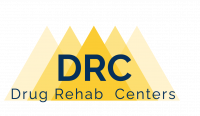- Emergency Help:(844) 739-2005
Decided to go to therapy? Great, good for you. But do you know where to start?
Oftentimes, this is the hardest decision-making step in the recovery process.
Addiction is not a one-size-fits-all thing, and neither is its treatment. If you want to choose the most suitable treatment program for you, it’s necessary to consider the following things:
- Your personal health needs
- Level of care you require
- The substance you are abusing
In this article, we will discuss some of the most common addiction therapies and treatments that can lead you down the path to recovery. So if you are thinking, “What therapy is best for me?” you are already one step in the right direction.
Best Therapies and Treatments For Addiction
The type of addiction treatment program you need depends on the severity of your substance abuse issue. Consider the following types of rehab therapies and treatments for the best results:
Intensive Outpatient Rehab
Outpatient rehabs offer therapies or treatments that patients can receive at their convenience without needing to live in a facility. Such types of treatments can occur at hospital-affiliated clinics, substance abuse treatment centers, community health clinics, or any other facility, meeting regularly. You can also choose outpatient programs that offer night and weekend programs – a great option for those who have personal, professional, and/or family responsibilities that can restrict them from going to inpatient rehab.
Residential or Inpatient Rehab
Residential or inpatient rehabs are live-in facilities where patients receive structured care plans and supervised treatment to help battle their addiction. Inpatient programs may last anywhere from a few weeks to a few months, depending on the severity of your substance abuse disorder. Some residential rehab programs require an outpatient rehab program after you have completed your stay. This level of care ensures you have the tools necessary to achieve long-lasting sobriety after your time in treatment. In short, inpatient rehab is a 24/7 support facility that involves special monitoring from professional addiction experts, as well as a strong network of supportive peers.
Detoxification
Also known as detox, this program helps patients to stabilize and overcome the withdrawal symptoms related to alcohol and drugs. Detox is a vital step in the addiction recovery process. Such programs may last for a few days or weeks. Once the patients are stable enough, they are then transferred to inpatient rehab for ongoing treatment.
Rational Emotive Behavior Therapy (REBT)
Rational Emotive Behavior Therapy (REBT) is one of the best ways to replace convictions and destructive thoughts with adaptive, healthier thoughts. It helps patients identify and challenge their self-destructive behavior associated with substance abuse. Goal achievement and emotional well-being are at the core of this process. By helping patients identify their own thought patterns, it helps them develop better habits and rational, positive thoughts to gain healthier emotions. The primary motive of this therapy is to develop internal rational thinking as external thinking is not enough to change one’s destructive actions.

Cognitive Behavioral Therapy (CBT)
Cognitive behavioral therapy (CBT) urges patients to question recurring thoughts and ultimately rule out the unhealthy and negative ones. This is one of the most efficient therapies for several kinds of substance use and various mental health disorders. Patients treated with CBT will learn to recognize and alter their maladaptive behaviors.
CBT helps to:
- Learn how to tackle risky situations in a productive manner
- Learn how to prevent relapse
- Gain coping healthier skills
Family, Individual, and Group Therapy
Family, individual, and group therapy are great for developing positive thoughts and building a strong support network. Family therapy occurs in the presence of your family members or loved ones. Group therapy occurs in a safe, peer-supported environment. Individual therapy is a one-on-one format with the patient and therapist that allows a safe, unbiased setting for one to vent and learn healthy coping strategies to achieve long-lasting sobriety.
Contingency Management (CM)
Contingency management (CM) is proven to be highly effective in treating substance use disorder of stimulants, marijuana, opioids, and alcohol. It is also used to reinforce or encourage sobriety. CM offers material rewards as motivation for positive behaviors like maintaining sobriety. The most prominent benefit of contingency management is that it eliminates the chances of relapsing.

Choosing the Right Therapy Treatment Program
Still wondering “What therapy is best for me?” Not sure which treatment program is the right fit for you? Call our team at (844) 739-2005 today to learn more about treatment centers in Southern California. We will help build a tailored treatment plan to fit your specific needs to ensure a safe, comfortable environment for you to begin the recovery process.

